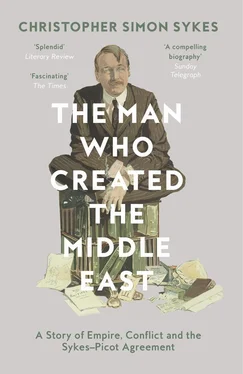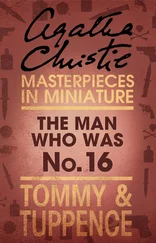1 ...8 9 10 12 13 14 ...20 It is hard to believe that this enforced separation would not have left some ice in Mark’s heart, though what happened next was far worse, and may have inspired his former tutor, ‘Doolis’, to warn him, ‘Unless you strive and fight against circumstances, you will grow up a worthless, cruel, hard-hearted, frivolous man.’ 5He returned from Brussels for the Easter holidays, and instead of his terriers racing out of the house to greet him, barking wildly, tails wagging and tongues eager to lick his face, there was no sign of them. There was silence. The servants would not look him in the eye. Then, under instruction from his father, one of the grooms took him down Sylvia’s Grove, a long carriage drive named after his great-grandfather’s favourite dog. There, beneath a tall beech tree by an iron gate, he met with a dreadful sight; the bodies of his beloved dogs, suspended from a branch, hanged to death on the orders of his father.
The fit of blind rage on his father’s behalf that inspired such a vicious and cruel act was the result of him having found out that Alice Carter had given birth to Mark’s child, a boy she had named George. It was a fact of which Mark was ignorant and was to remain so for the rest of his life. Though Jessie had succeeded in keeping the pregnancy a secret from Tatton, it had been impossible to prevent him finding out once the child was born, as she felt strongly that she had to persuade him to take financial responsibility, and it is a tribute to her strength of character that she managed to achieve this. She then arranged for Alice’s cousin, Mary Page, and her husband, Frederick Lott, to adopt the baby. George was brought up in Sheerness, where Frederick worked in the docks, and here Alice was allowed to visit him in the guise of his aunt. Jessie impressed it upon her that on no account was she to attempt to make any contact with Mark, whose interests and honour were not to be compromised. ‘She totally accepted this,’ her granddaughter, Veronica Roberts, later confirmed. ‘I imagine that Jessica must have been very persuasive and very forceful too. Alice also probably had a great feeling of guilt. She no doubt felt that she had misled this boy and was now paying for it. She always held this strong belief that nothing whatsoever should damage Mark’s reputation.’ 6
What saved Mark from being completely dragged down by the hideous events being played out around him was going up to Cambridge University, in the Easter term of 1897. He was accompanied by Beck and an Irish valet, MacEwen, an old servant of his mother’s. Jessie had chosen Jesus College, for reasons thoroughly typical of her. She had originally intended him to go to Trinity, but on arriving late for her appointment with the Master had given as her excuse, ‘I’m sorry to be late, but I’ve been at the Cesarewitch.’ When he replied ‘Oh, and where may that be?’ she interpreted his ignorance of turf affairs as stupidity, turned tail and headed to the neighbouring college, which happened to be Jesus, to put her son’s name down there. ‘I was going to make sure,’ she said later, ‘that my son was not put in the charge of a lunatic!’ 7
Mark was hardly the run-of-the-mill Cambridge student. ‘I must say I was not impressed by him when he first came,’ wrote one of the dons, Dr Foakes Jackson. ‘He struck me as a rather undeveloped youth whose education had been neglected. I considered that he would soon vanish from the scene and be no more heard of. By slow degrees I realized that Sykes was a man of exceptional powers. I discovered that he was one of those people who really understand the traveller’s art and can educate themselves by observation … [He] showed even as a lad an extraordinary grasp of all that was really important in the countries he visited and surprised those who knew him by the breadth of his interests.’ 8His evident charm and intelligence allowed him, just like his mother, to get away with murder. ‘About once a week,’ recalled Foakes, ‘his man McEwen appeared in his place with a message to the effect that Mr Sykes regretted that he “could not attend upon my instructions that day”, the words being evidently those of McEwen.’ 9His tutor, the Rev. E. G. Swain of King’s, soon realized that his new charge had little, if any, interest in the tasks ahead of him, such as passing exams, but was, on the other hand, head and shoulders above most of his fellow students when it came to knowledge of the world and of the important things in life, and was also excellent company. ‘He never failed to be unobtrusively amusing,’ he recalled, ‘and, since none of us had had experiences like his, he was always interesting. His experiences of travel, acute observation, retentive memory and great powers of mimicry supplied him with means of entertainment such as no one else possessed …’ He was impressed too by how unspoiled he was. ‘It would be hard to find,’ he wrote, ‘another instance of a wealthy young man, completely his own master, who lived so simply or held so firmly to high principles.’ 10
The most important friendship that Mark struck up in his first term at Cambridge was with the distinguished scholar Dr Montague Rhodes James, then Dean of King’s. He was a historian, amateur archaeologist, expert on medieval manuscripts, writer of ghost stories and an excellent mimic, and it was his habit to hold open house each evening in his rooms on the top floor of Wilkins’ Buildings in King’s College and he would leave his door ajar for any student who wished to visit. ‘To a very large number of them,’ wrote a contemporary, ‘he was the centre of their Cambridge life. It is safe to say that not one of them ever found him too busy to talk to them, play games with them, make music with them on that very clangy piano, and entertain them with his vast stores of knowledge, his inexhaustible humour and his unique power of mimicry. The tables were piled deep with books and papers, with perhaps a whisky bottle and siphon standing among them.’ 11Mark and James were made for one another. ‘On many an evening,’ James later wrote in his autobiography, ‘he would appear at nine and stay till midnight: I might be the only company, but that was no deterrent. Mark would keep me amused – more than amused – hysterical – for the whole three hours. It might be dialogues with a pessimistic tenant in Holderness, or speeches of his Palestine dragoman Isa [ sic ] … or the whole of a melodrama he had seen lately, in which he acted all the parts at once with amazing skill. Whatever it was there was genius in it.’ 12
Acting was one part of his life at Cambridge to which he gave one hundred per cent, becoming a leading member of the Cambridge Amateur Dramatic Club, acting in and directing productions such as Sheridan’s The Critic , as well as designing and drawing the posters that advertised them. It was a good way of temporarily forgetting the problems that overshadowed his life. His mother was now in deeper trouble than ever. The effect of his father’s advertisement had been to bring all her creditors out into the open, each one clamouring for payment. Since no one would now lend her any money, she could no longer resort to the expedient of borrowing from one to pay off another. In a last-ditch attempt to settle the matter once and for all, Tatton’s lawyers drew up an agreement under which, in return for her promise ‘not to speculate any more on the Stock Exchange or to bet for credit on the Turf’, she would receive a lump sum of £12,000 to discharge her existing liabilities, and a guarantee of a future allowance of £5,000 per year plus ‘pin money’ out of which she would pay all the household and stable accounts in London. The signing of this might have solved the problem had it not been for the fact that, paying exorbitant interest rates of 60 per cent, the true sum borrowed by Jessie since 1890 was £126,000, meaning there were still massive debts which she had kept secret, and by the spring of 1897 the creditors were once again banging at the door. They were led by one Mr Daniel Jay, of 90 Jermyn Street, a moneylender with the telegraphic address ‘BLUSHINGLY, LONDON’, whom Mark was later to refer to as ‘the biggest shark in London’. 13
Читать дальше











